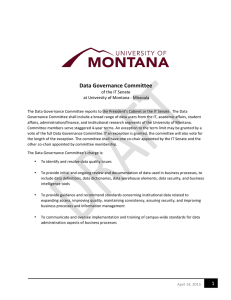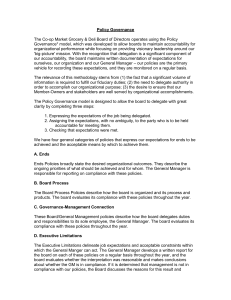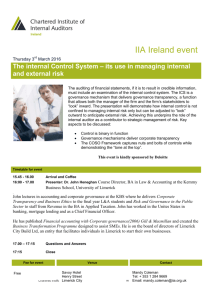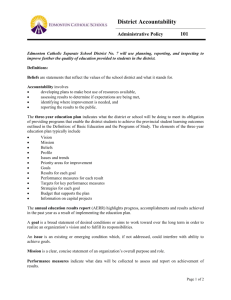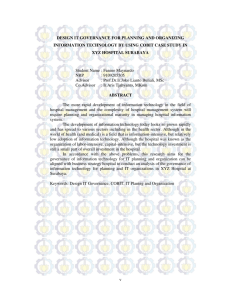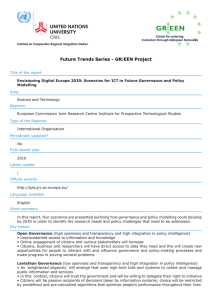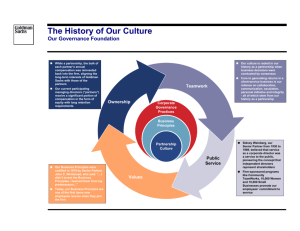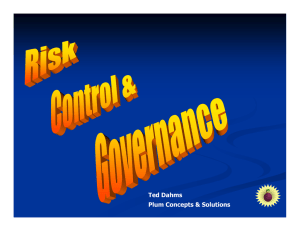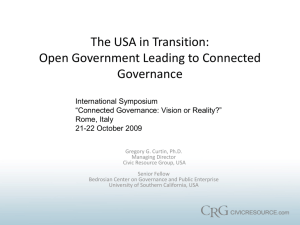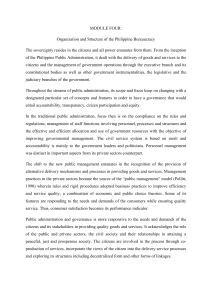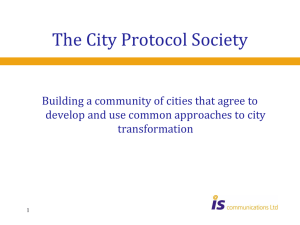Principles of Good Governance
advertisement
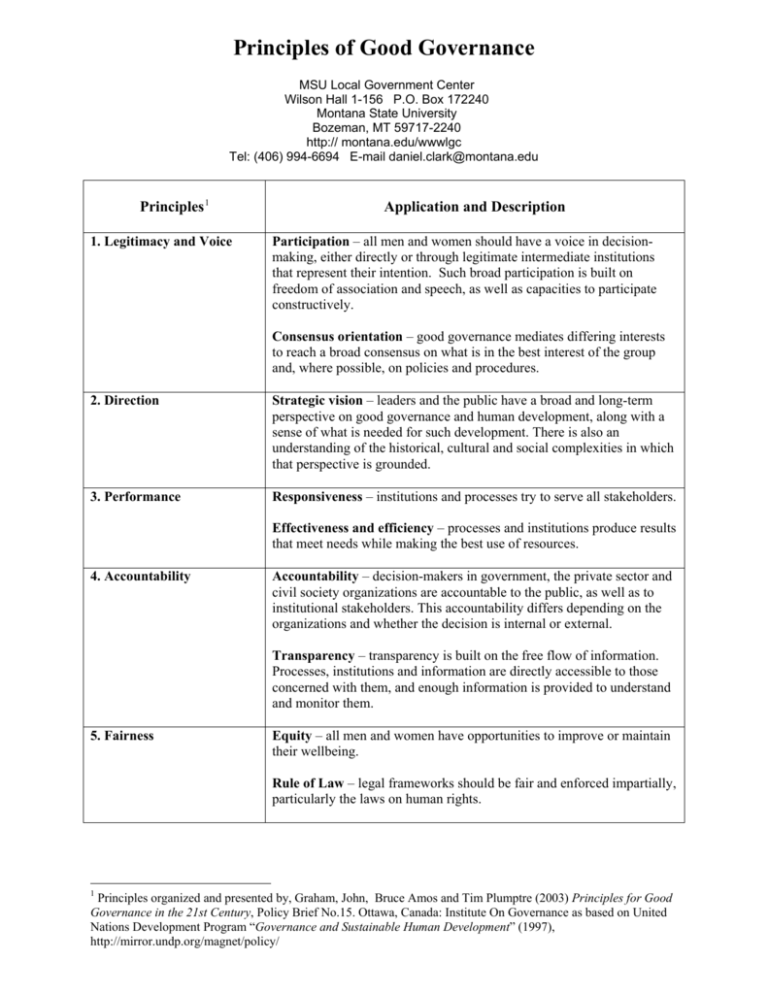
Principles of Good Governance MSU Local Government Center Wilson Hall 1-156 P.O. Box 172240 Montana State University Bozeman, MT 59717-2240 http:// montana.edu/wwwlgc Tel: (406) 994-6694 E-mail daniel.clark@montana.edu Principles 1 1. Legitimacy and Voice Application and Description Participation – all men and women should have a voice in decisionmaking, either directly or through legitimate intermediate institutions that represent their intention. Such broad participation is built on freedom of association and speech, as well as capacities to participate constructively. Consensus orientation – good governance mediates differing interests to reach a broad consensus on what is in the best interest of the group and, where possible, on policies and procedures. 2. Direction Strategic vision – leaders and the public have a broad and long-term perspective on good governance and human development, along with a sense of what is needed for such development. There is also an understanding of the historical, cultural and social complexities in which that perspective is grounded. 3. Performance Responsiveness – institutions and processes try to serve all stakeholders. Effectiveness and efficiency – processes and institutions produce results that meet needs while making the best use of resources. 4. Accountability Accountability – decision-makers in government, the private sector and civil society organizations are accountable to the public, as well as to institutional stakeholders. This accountability differs depending on the organizations and whether the decision is internal or external. Transparency – transparency is built on the free flow of information. Processes, institutions and information are directly accessible to those concerned with them, and enough information is provided to understand and monitor them. 5. Fairness Equity – all men and women have opportunities to improve or maintain their wellbeing. Rule of Law – legal frameworks should be fair and enforced impartially, particularly the laws on human rights. 1 Principles organized and presented by, Graham, John, Bruce Amos and Tim Plumptre (2003) Principles for Good Governance in the 21st Century, Policy Brief No.15. Ottawa, Canada: Institute On Governance as based on United Nations Development Program “Governance and Sustainable Human Development” (1997), http://mirror.undp.org/magnet/policy/
